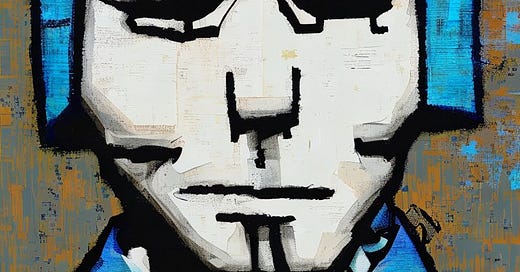Re-Anonymizing Digital Identity
Social media has largely unmasked what were previously pseudonymous digital identities. That movement might be about to reverse in a big way.
Twenty years ago or so I signed up for my first email address. It was with Yahoo. I told Yahoo my name was “Mike Stevenson.” My name is not Mike Stevenson. Even as a dumb teenager, there was something about internet connectivity that made me put a guard up. I wanted some discretion or anonymity in my online activities even at 15 years old.
When I discovered message boards, my username was nothing close to my legal name. My avatar was a picture of hip-hop legend Nas. Anyway, beyond my location in my profile, there was almost no way a reader could know who I was unless they were a brilliant coder/hacker of some sort. My identity online was nothing close to who I really was.
Then 2005 happened. I went to college and got a Facebook account. Suddenly, I wasn’t a rando with a Nas picture anymore. I was Mike Fay. Not only was I completely unmasked, but I pretty much let you know everything about me. What movies I liked. Who my favorite artists were (Nas, duh). Where I had lived. My sports allegiances. My pictures and relationship status told a story as well. Booze hound, douchebag, and single. Very impressive.
In the 15 years following my first real social media exposure, I became increasingly concerned with the business model of the biggest social media companies. I didn’t just have Facebook. I had Twitter. I had Instagram. I had Linkedin. Mike Stevenson was dead. Officially replaced by Mike Fay. And Mike Fay felt increasingly targeted for advertising as the years progressed. Mike Fay actually ended up working in the media sales business and started to see how some of the sausage was made. Mike Fay doesn’t like it when people refer to themselves in third person. Mike Fay is being a massive hypocrite in this post.
Anyway, in early 2020 the Social Dilemma came out. By this time, it had already been obvious to me how the Facebooks of the world made money. Following the Netflix special, a light had been shined on just how predatory the business model actually was. As we learned, it has been particularly harmful to young people who have lived their entire lives with no escape from being “connected.” This is when my desire to “opt out” of the social media beast really started to intensify. I deleted Facebook in late 2020. The rest just needed a little push.
That push came in January of 2021. Some of you already know the story so I won’t retell the whole thing. You can read this instead if you’re genuinely curious. My social accounts were essentially purged. I still have StockTwits and have Discord for project research purposes. Neither of them are on my phone and I only check them once or twice a week with a desktop browser.
While I have definitely experienced broad life improvements since dumping my social media, one thing that I have missed is the discovery component that I enjoyed with Twitter. And the rise of the “avatar” as an investment has been particularly fascinating to watch from the sidelines. No doubt driven by the crypto space, it is my guess that the avatar NFT crowd is largely coming from Gen Z and Younger Millennials. I take this view based on what we know about crypto adopter demographics. They’re essentially all under 40.
The logical question is why is this happening? I’m going to make another guess. Both Gen Z and younger Millennials are unlikely to remember the AOL instant messenger world. They probably don’t know anything other than real faces and the hyper-personalized existences of today’s digital identity. There are definitely exceptions to this assessment, but I suspect that if you follow someone on Facebook or Instagram, you know exactly who they are and what they look like.
I believe it is possible that this form of digital identity could be rejected to a large degree. Instead, users of connected platforms could opt for a re-anonymization of digital community presence. The rise of Discord would seem to validate this argument. A move to a more anonymous digital identity also protects the user from the “cancel culture” environment we are now living in. It’s much more difficult to pressure employers to fire staffers if you don’t know the actual identity of the internet character you have been offended by.
Though I no longer have Facebook, Twitter, or Linkedin, I’m still Mike Fay. Mike Stevenson isn’t coming back. I’m Faybomb. Or the Heretic Speculator. Or Asshole. You can call me whatever you want. I’m fine with putting out what I do with my actual face and name attached to it. It doesn’t bother me. Despite that, that desire for digital anonymization has never left me.
Before I unmasked as Mike Fay on Seeking Alpha, I was “Manhole Financial.” Manhole started as a fake research financial firm run by a Rich Uncle Pennybags lookalike. Manhole Financial and Mike Stevenson are at a zombie bar together somewhere near a digital identity cemetery. Will there ever be another pseudonym? You’ll never know...




